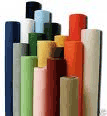
Dierretex Srl started up in Tuscany in 1986 as a specialised manufacturer of Non-woven fabric (TNT). Our products are used in various industrial and domestic sectors with the versatility of TNT making it suitable for use in a wide range of commodity sectors: packaging, clothing, promotions, medical, thermal-cosmetic, plane, shipping and rail transport and so on.
Some examples:
- clothes covers and cases
- sample collection cases
- shoe bags
- carrier bags, shoulder bags
- gift articles
- shopping bags
- glass holders for tasting
- bibs for events
- seat head covers for planes, trains and coaches.
The experience we have acquired has led us to develop new combinations of TNT with other materials such as cotton, satin and PVC. Customised fabrics are increasingly in demand and we can personalise your fabric with multi-colour prints, using silkscreen printing or hot transfers.
From the outset, Dierretex snc has produced shoulder pads for men’s and women’s clothes and these remain our strength; we can make them in any shape and size possible: shoulder pads in cotton wadding, polyurethane foam, unlined or lined with knitted fabric in the various colours.
Our artisan-scale organisation is flexible enough to handle small orders easily while also running to industrial scale production.
As well as producing in our own right, we use our technology and know – how to perform sub-contracting orders.
The materials and colours used all comply with current EEC legislation.
 |
 |

Non-woven fabric (TNT is the Italian acronym) is a general term used to describe an industrial product similar to fabric but obtained without weaving (crossing warp and weft fibres using a loom) or knitting. Production usually entails the use of fibres arranged in layers or crossed over which are joined mechanically (for example using needles), using adhesives or by means of heat processes.
The key features of good non-woven fabric are: water-repellence, resistance to low temperatures and extreme softness or least non-abrasiveness on contact (making it perfect for cleaning, stain removal or dusting). One particular production method is spin-bonding which consists of melting the polymer before perforating and pressing it to improve the softness of the product and permit extremely fine layers to be produced.